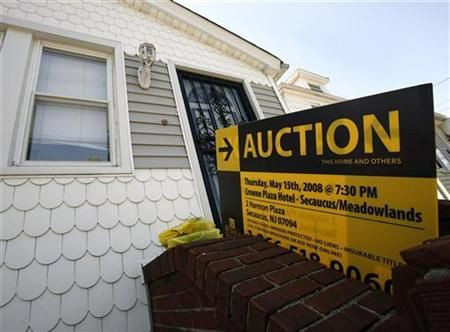Steven J. Baum Closing Expected to 'Diffuse' New York Foreclosure Business

With Steven J. Baum closing, foreclosure business is expected to diffuse among smaller, local firms in New York State, real estate lawyers told IBTimes.
But it's uncertain how the closing of the firm, which handled around 40 percent of the state's foreclosure business, will affect the backlog of foreclosed homes.
The foreclosure process in New York was designed to be slow, said Stuart Saft, a partner and chair of Dewey & LeBoeuf's Global Real Estate Department.
There are around 13 separate motions in the state's foreclosure process, said Saft -- a legacy of the Great Depression, designed to protect homeowners from losing their homes too quickly. Different regions in the state also have different rules, making local knowledge a boon.
It's unlikely that Baum's business would be picked up by one firm, and the banks are more likely to choose local firms to take over their accounts, said Saft. Having local attorneys involved in a case -- rather than a large company that may be in another county -- can benefit homeowners, he added. Foreclosed homeowners will have an easier time of communicating with attorneys, and the lawyer's reputation can be better scrutinized.
Rather than slow the process down, I think the removal of a central firm will speed the effect up, said Saft.
Steven J. Baum's book of business had been under investigation by the U.S. District Attorney, which froze the process. Those foreclosures under review would likely be restarted if they went to another firm, which would delay the resolution further, said Howard Rubin of law firm Goetz Fitzpatrick.
It's going to be years before they clear up this foreclosure mess, said Rubin.
Meanwhile, homeowners may continue to live in the homes until evicted, while some banks may seek short sales to recoup some of their money.
Although New York State has many foreclosures to process, it is faring better than much of the U.S. According to RealtyTrac, one in 4,892 housing units in New York State had a foreclosure filing in October 2011, much lower than the national average of one in 563. The bulk of foreclosure filings were in Brooklyn, the Bronx, Westchester and counties on Long Island, but those areas are more densely populated that upstate areas, which have been harder hit by the housing crisis.
Ultimately, Rubin hailed Steven J. Baum's closing as a step in the right direction in resolving improper foreclosure processing.
He gave the legal profession and the banking profession a black eye, said Rubin, referring to Baum's eponymous owner, Steven Baum. The sooner he is forgotten, the better.
© Copyright IBTimes 2024. All rights reserved.





















